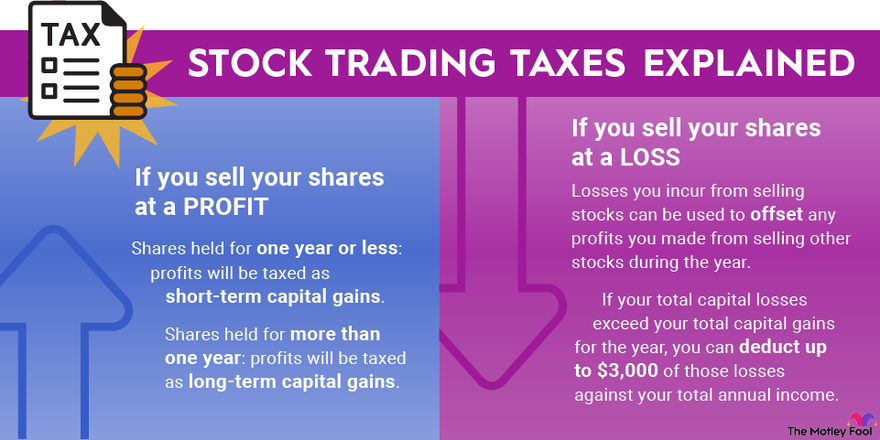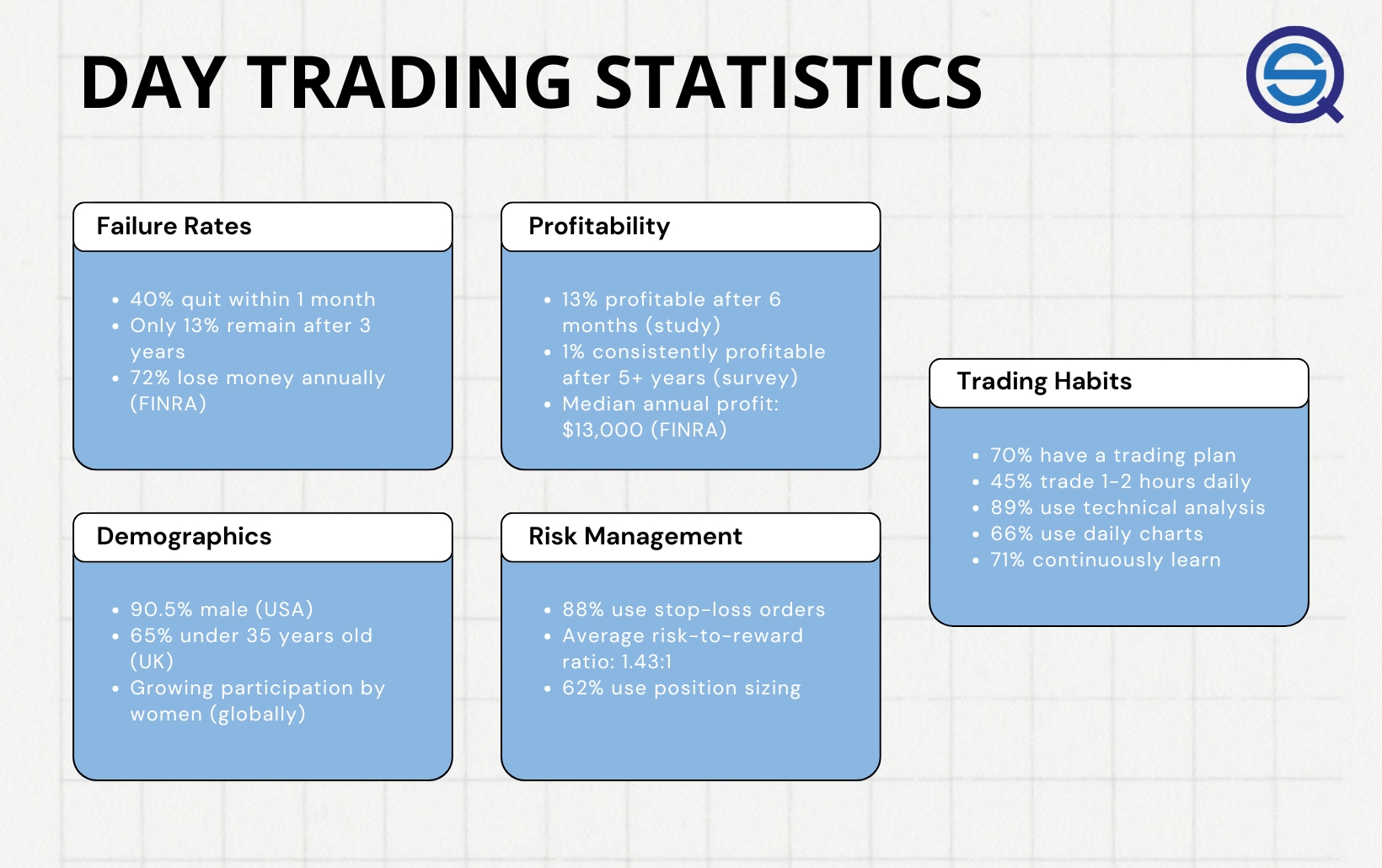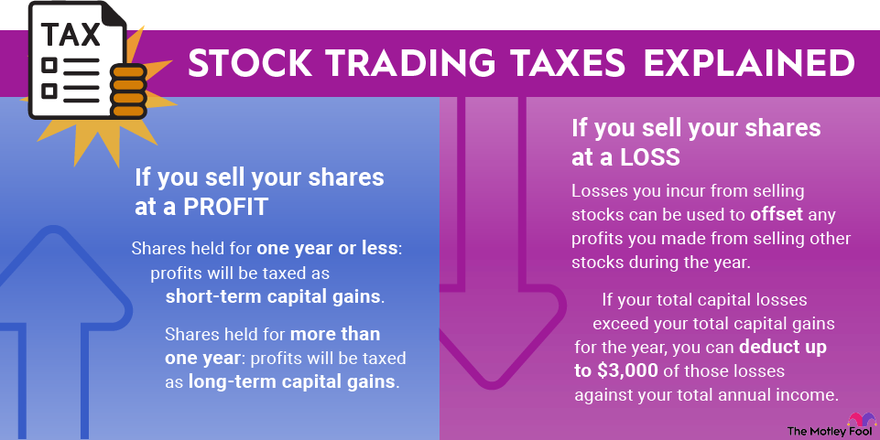Did you know that if you tried to count all the pennies made by day traders in a year, you'd have enough to buy a small island? Just kidding—unless you’re incredibly successful! In this article, we dive deep into the tax implications of day trading by addressing key questions like whether your profits are classified as income or capital gains, how the IRS categorizes them, and what tax forms you need to file. We’ll clarify the difference between active and passive income, discuss the deductibility of losses, and explain how wash sale rules can impact your tax reporting. Plus, we’ll reveal the potential tax advantages for active traders and how your gains could affect your tax bracket. If you want to navigate the complex world of day trading taxes, read on to uncover all the essential insights from DayTradingBusiness!
Are Day Trading Profits taxable as income?
Yes, day trading profits are taxable as ordinary income if you're classified as a trader for tax purposes. If you're considered an investor, profits are treated as capital gains. The IRS differentiates between these based on your trading activity's frequency and intent.
How do the IRS classify day trading gains?
The IRS classifies day trading gains as ordinary income, not capital gains. If you're actively trading and making quick trades, the profits are taxed as regular income, subject to self-employment taxes if applicable.
Is day trading considered active or passive income?
Day trading is considered active income because it involves frequent buying and selling of securities within short periods, requiring ongoing effort and decision-making.
Are profits from day trading taxed as capital gains?
Profits from day trading are generally taxed as ordinary income, not capital gains.
What’s the difference between income and capital gains tax for traders?
Day trading gains are typically considered income, taxed as ordinary income or short-term capital gains, because the IRS views active trading as a business. Capital gains tax applies to investments held longer than a year, taxed at lower rates. For traders, frequent buying and selling usually means gains are classified as income or short-term capital gains, not long-term.
Do day traders need to report gains on Schedule C or Schedule D?
Day trading gains are considered ordinary income and should be reported on Schedule C.
How does the IRS treat frequent day trading profits?
The IRS considers frequent day trading profits as ordinary income, subject to regular income tax rates, not capital gains.
Are day trading losses deductible against other income?

No, day trading losses are not deductible against other income. They can only offset day trading gains, and if losses exceed gains, they cannot be used to reduce other types of income.
What records are needed to prove day trading gains?

You need detailed brokerage statements showing your daily trades, profit and loss summaries, and tax documents like Form 1099-B. Keep records of trade dates, prices, commissions, and account statements to substantiate gains. These documents prove whether your day trading profits are classified as income or capital gains.
Can day trading be considered a business for tax purposes?
Yes, day trading can be considered a business for tax purposes if it is your primary source of income, you actively buy and sell securities regularly, and you treat it as a business. The IRS may classify your day trading as a business if you meet certain criteria, allowing you to deduct related expenses and report gains as business income.
Learn about Tax Considerations for Day Trading as a Business
How do wash sale rules affect day trading tax reporting?
Wash sale rules disallow claiming a loss on a security if you buy the same or a substantially identical security within 30 days before or after selling it at a loss. This means day traders can't immediately deduct losses from their gains if they trigger wash sale rules, complicating tax reporting. Instead of recognizing the loss in the current year, the disallowed loss gets added to the cost basis of the repurchased security, effectively delaying the loss deduction. This affects how day trading gains and losses are reported, making it more complex to distinguish between income and capital gains in tax filings.
Learn about How Do Regulations Affect Day Trader Tax Reporting?
Are short-term and long-term gains taxed differently for day traders?
Yes, short-term gains are taxed as ordinary income, while long-term gains benefit from lower capital gains tax rates.
What tax forms do day traders need to file?
Day traders typically file Schedule C if they qualify as sole proprietors, reporting trading income as business income. They also report gains and losses from trading on Schedule D and Form 8949. If trading is considered a business, they may also need to file Schedule SE for self-employment tax.
How do trader tax status rules impact taxation?
Trader tax status allows active day traders to treat gains as ordinary income instead of capital gains, meaning they can deduct trading-related expenses directly against income. Without trader tax status, gains are taxed as capital gains, which may be taxed at lower rates and limited by holding periods. This status also enables marking-to-market accounting, allowing traders to realize gains and losses annually without wash sale restrictions. Overall, trader tax status can significantly influence how day trading profits are taxed—potentially lowering tax burdens and enabling more favorable deductions.
Can day trading gains push you into higher tax brackets?

Yes, day trading gains are considered ordinary income and can push you into higher tax brackets.
Are there specific tax advantages for active traders?
Yes, active traders can qualify for trader tax status, allowing them to deduct trading expenses and potentially treat gains as business income rather than capital gains. This can enable benefits like deducting trading-related expenses directly against income and electing mark-to-market accounting to convert gains into ordinary income, avoiding the wash sale rule.
Conclusion about Are Day Trading Gains Considered Income or Capital Gains?
In summary, day trading gains are primarily classified as ordinary income by the IRS, subjecting them to income tax rather than capital gains tax. Traders must navigate complex tax rules, including the distinction between active and passive income, and utilize appropriate tax forms like Schedule C or Schedule D. Additionally, understanding the impact of trader tax status, wash sale rules, and potential deductions is crucial for effective tax reporting. For detailed insights and personalized guidance, DayTradingBusiness is here to help you optimize your trading strategies and tax compliance.